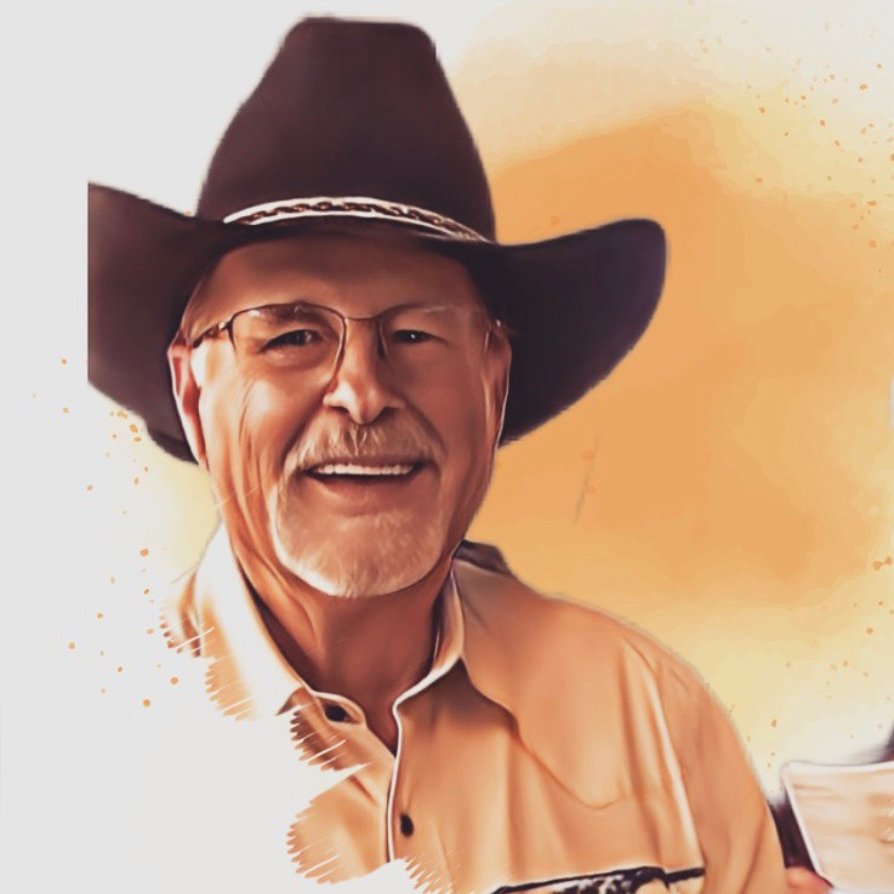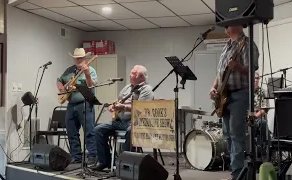Guitarist returns to playing with help from OrthoKansas
One of the great joys for Old Time Country Music Hall of Fame member Danney Williams is playing the guitar. He was set to play in the band last fall at a local church dance when disaster struck. He was doing some work at the church, going up and down a ladder but before he knew it, it had gone out from under him.
“I was up three or four steps when the ladder collapsed,” he said. “I was falling and the next thing I know, I’m on the floor looking at my wrists and knew it wasn’t good. I knew they were broken.”
Others who were present in the church heard the fall and ran to help. They knew from the scrapes on his forehead that Williams had hit his head and urged him not to get up. That wasn’t a problem, since he needed help and couldn’t do it on his own. They loaded Williams into a van and drove him to the emergency department at LMH Health.
Not one but two breaks

Danney Williams
After checking in and being taken back to a treatment room, Williams learned that he was right. He had broken both of his wrists in the fall. They were placed into splints, wrapped and he was sent home to rest. The following Monday, he had an appointment with physician assistant Ryan Fleming at the Express Care clinic at OrthoKansas.
Fleming diagnosed Williams with distal radius fractures in both wrists. These fractures occur when the radius – one of the two long bones in the forearm – breaks close to the wrist. According to the American Academy of Orthopaedic Surgeons, the radius is the most commonly broken bone in the arm.
“A distal radius fracture can occur in people of all ages,” said Neal Lintecum, MD, an orthopedic surgeon with OrthoKansas. “In older people, this can occur from a fall on the wrist. Breaking both wrists can occur due to a number of injuries, but a fall is the most common.”
Just a few days after his initial visit at the clinic, Williams was headed into surgery with Dr. Lintecum to begin the repairs.
“We started by repairing the left wrist – the one with the worst injury - first,” Lintecum said. “After the other wrist began to settle, we went back in and performed surgery on that side as well.”
Williams was put into casts after surgery to help begin the healing process. With both hands compromised, he wasn’t able to do anything by himself. He was fortunate to have his wife by his side.
“She was a lifesaver. For better or worse, in sickness and health, she was there,” Williams said.
Things got a little dicey when Williams’ wife was diagnosed with COVID during his recovery. He still wasn’t able to care for himself, so their daughter, Theresa, came to help as his wife isolated in another room. He also shared that numerous people offered support with food, visits, cards and calls.
Return to the music
While recovery is different for everyone, Lintecum explained that patients with a distal radius fracture typically recover in about two months. Physical therapy isn’t always needed during that time, but Williams turned to a therapist for help to get back to doing what he loves – playing the guitar.

“My therapist said that he thought I was improving more quickly than folks who only break one,” he remarked. “If you break one, you can overcompensate with your good hand. I didn’t have any good ones, so I had to do the exercises to get them back in operation.”
Williams was released from therapy on February 10, but he’d been making progress along the way. He’s back to playing the guitar – though not as much as before – and was even able to play Silent Night at Christmas Eve Mass and in Dr. Cook’s Medicine Show Band for a New Year’s Eve dance. He doesn’t have complete movement without a little bit of pain, but can play most of the jobs he has.
“I only play four to five times a month now and I’m comfortable with that. My therapist said I’m coming along really well and that I can have full recovery in time,” he said.
When you need care for an orthopedic injury, Williams recommends turning to LMH Health and Dr. Lintecum. He said that talking with everyone at LMH almost felt like he was sitting in his own living room talking with family.
“It’s a tough thing to lose the ability to use your wrists and not knowing what the outcome will be. I think about it and get kind of emotional,” he said softly. “Everyone at LMH from the receptionist to the anesthesiologist, the doctor and nurses – I’ve never been anywhere and treated any better. I don’t think you could go anywhere and have better care than I’ve had here.”
Williams joked that his goal is to get to the point that he doesn’t have to ask his wife to open a jar. He’s ready for her to go back to asking him for help. He feels fortunate to be able to get back to playing the guitar and doing the other things he used to.
“It’s amazing that I couldn’t even dial the phone to call 911 and now I’m able to play the guitar in just a few months,” Williams said. “The words don’t come to express my appreciation for the team at LMH Health enough.”